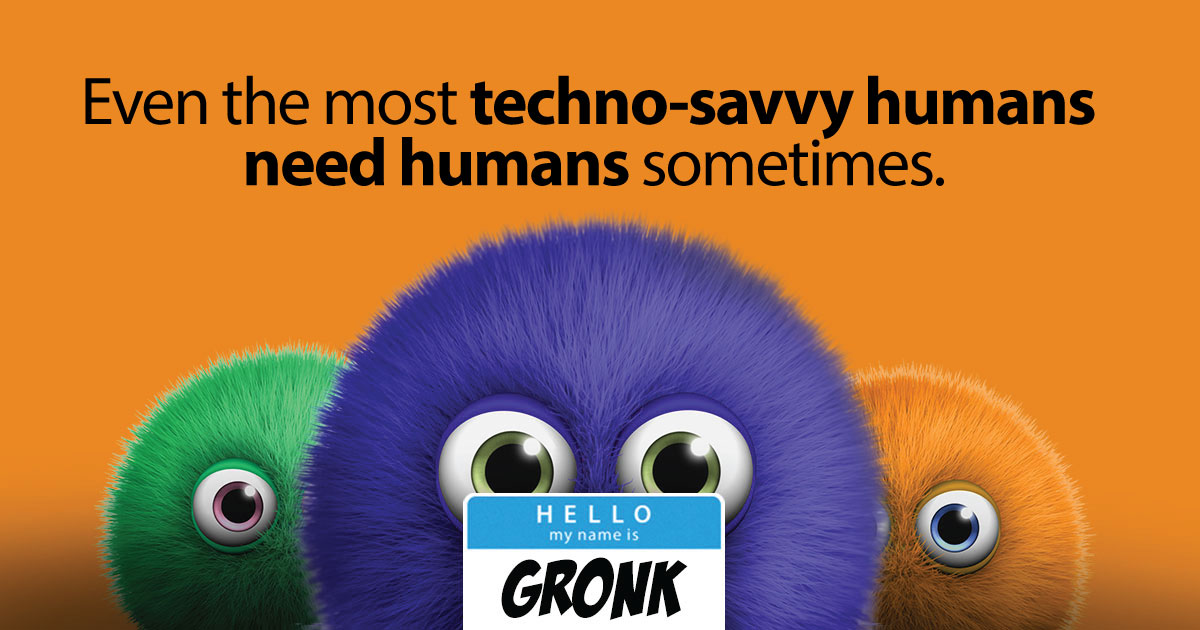
“Meatspace” is a CU superpower
Over the last few months, I’ve been to several in-person events, both professionally and personally. There really is nothing like being in real live “meatspace” with other real live humans when you want to connect, learn, innovate, and just plain have fun.
Of course, you can also form real connections and have real, human-to-human experiences via Zoom, Teams, or Google Meet as well. Or even via telephone, if you’re old fashioned. (And email and text if you’re a little less old-fashioned.)
We’ve successfully worked with credit unions all over the US for many years, and have only met a small fraction of our clients in person. But even with all the technology to connect us, there’s still a significant advantage to actually meeting in person. Whenever I get the chance to visit a credit union, I learn an enormous amount about the CU and their community simply by spending time there.
And when you think about it, “meatspace”, actually physically being there, is one of the things that differentiates CUs the most.
Local matters, a lot.
This one’s obvious; almost all credit unions, by their nature, are very much tied to the communities they serve. Rather than extracting profits from a community to send to investors, credit unions foster financial wellness locally, and the money and the benefits stay local. That’s a big plus, and it’s worth making sure your members know they’re “buying local”.
Of course, there are other ways to define a community besides geography. University CUs, for example, allow alumni to become and remain members, so over time they end up with significant numbers of members all over the world.
The common thread is local values, local knowledge, and local priorities; when you have these in common with your members, you have an advantage that can’t be matched.
Bricks and mortar still matter
A physical presence, not to mention the local volunteers and employees, are part of a credit union’s stake in a community. These are tangible signs of your commitment and ownership, and show that you’re neighbors who are going to make your shared community a priority.
Of course, it’s also about availability. Even members who rarely ever set foot in a branch are reassured by knowing that they can find a human if and when they need one. Even the most independent, techno-savvy humans need humans sometimes.
Local decisions make a difference
Let’s face it; applying for a car loan or a mortgage is pretty scary for most people. And putting a chunk of your money into a certificate also requires a high level of trust.
It can be very reassuring to know that decisions are made locally, by people you can talk to, and who will be accountable. A bunch of strangers (or a computer or AI) in another state can’t match that advantage.
There’s nothing like local knowledge
I once talked to the CEO of a credit union across the street from a large manufacturing plant. From their very earliest days, they had a huge advantage because of their local knowledge. Long before computers and databases, they knew exactly how much money a welder or assembly worker made and could approve loans in a minute or two with a bare minimum of paperwork.
Local knowledge carries a lot of other advantages as well in all sorts of decisions about where to build, how to advertise, how and where and how much to lend, what messages and language will communicate the best, and in many other areas.
It’s about reflecting shared values, and using local knowledge as a strategic advantage.
In-person doesn’t mean old-fashioned
Of course, no matter how in-person your credit union is, it’s also important to meet your members where they are, and communicate in the ways they want to communicate.
Take advantage of the convenience and benefits of technology, with virtual meetings, online appointments, banking via text, and all the rest. These are all still ways of connecting humans to humans.
Even the newer automated and AI tools are best used as ways for real live people to do more good for more people, not as ways to disconnect.
Just make sure to keep your natural credit union superpower, and prioritize human-to-human connections, even “meatspace” when it makes sense.
- CU Numbers Need Marketing Love, Too - April 2, 2024
- Will it blend? The only CU fintech question that matters. - February 13, 2024
- Solving the CU marketing “now what?” problem - January 16, 2024
